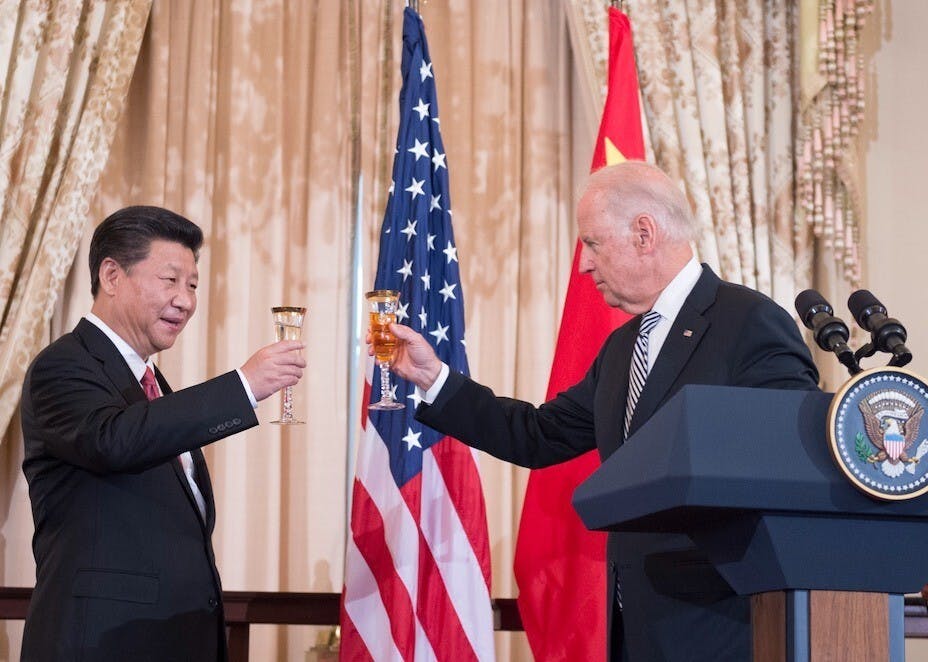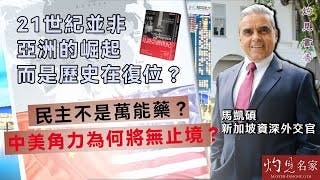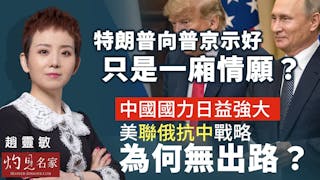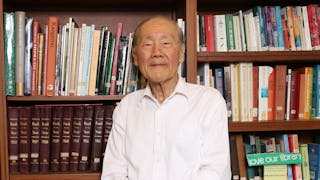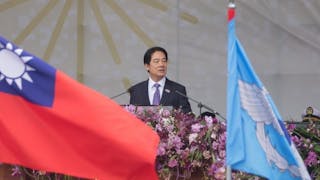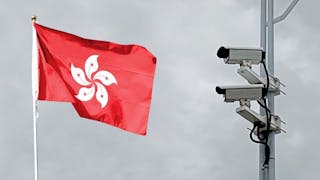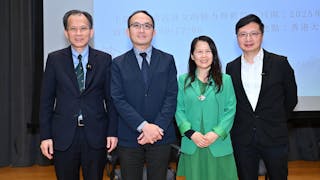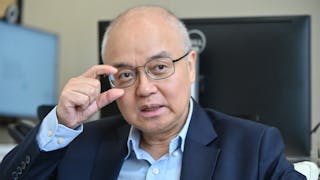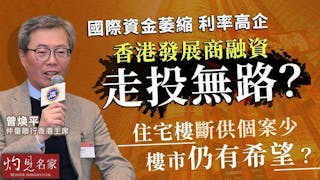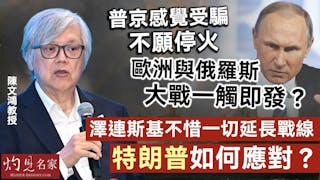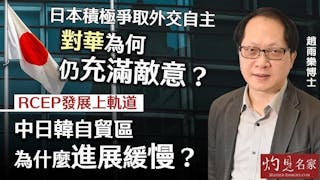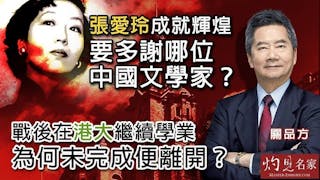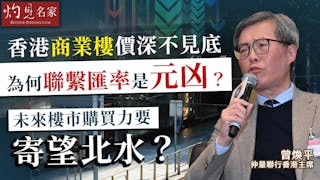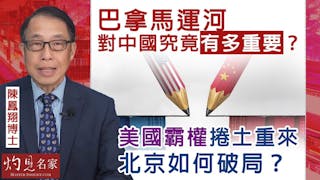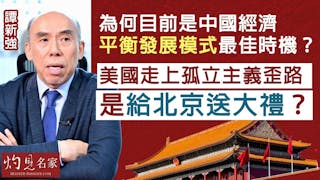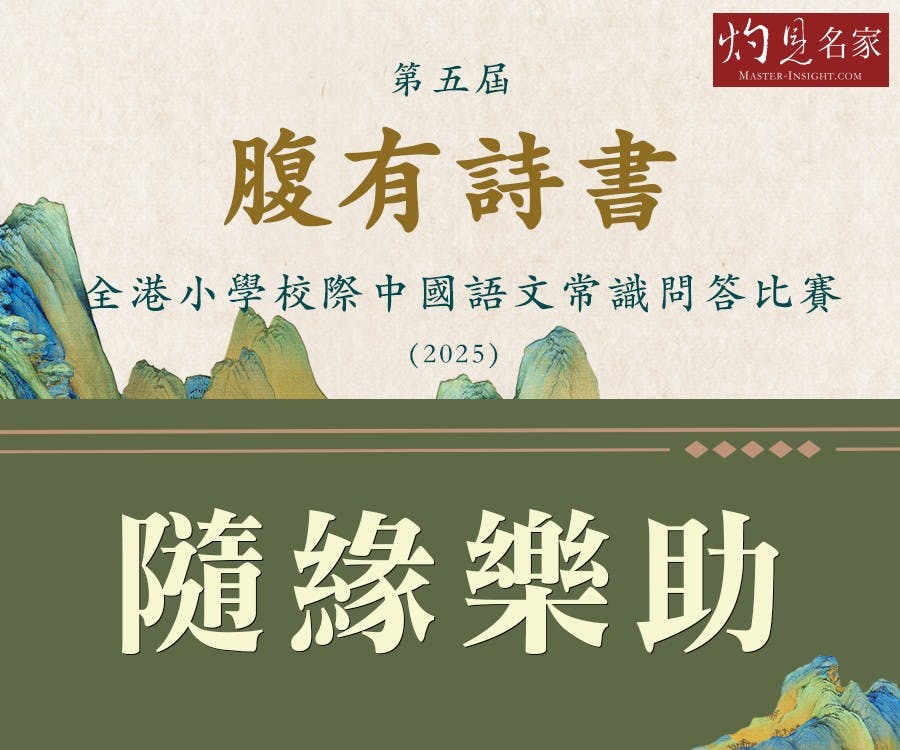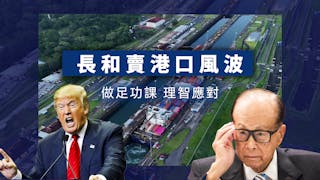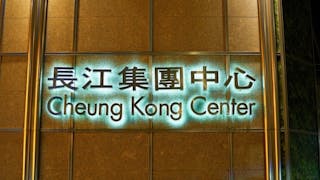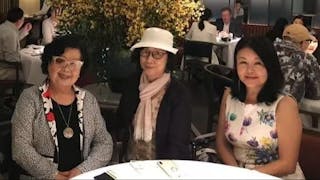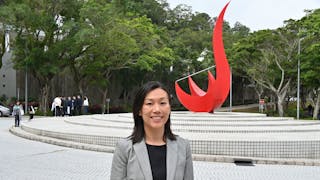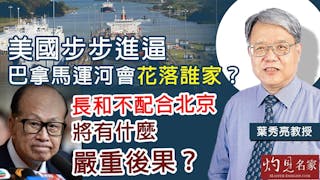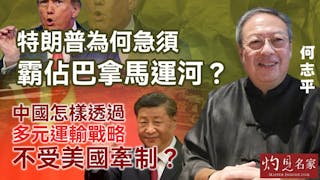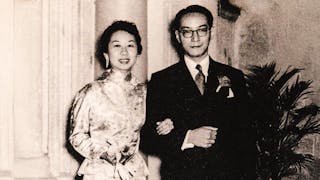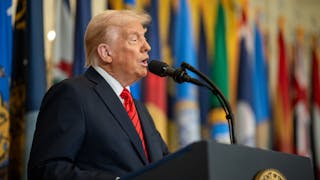國家主席習近平最近與美國總統拜登通了90 分鐘電話,對中美兩國建立互信具有重要意義。
白宮9月9日的對話摘要很簡短,只說「兩國領袖對雙方利益趨於一致的領域,以及利益、價值觀與觀點分歧的領域,進行廣泛的戰略性討論。」該聲明補充說,拜登和習近平「同意開誠布公地處理這兩類議題。」從拜登的角度看,這次對話是美國「為負責地處置美中競爭所做持續努力的一部分」。拜登強調美國「對印太地區與世界和平、穩定與繁榮的長久利益,兩人也討論兩國確保競爭不會陷入衝突的責任」。
中美關係有望重回穩定發展正軌
新華社9月10日發表了兩國領導人電話的報道,稱雙方「就中美關係和雙方關心的有關問題進行了坦誠、深入、廣泛的戰略性溝通和交流」。習近平指出,中美兩國「分別是最大的發展中國家和最大的發達國家,中美能否處理好彼此關係,攸關世界前途命運,是兩國必須回答好的世紀之問。中美合作,兩國和世界都會受益;中美對抗,兩國和世界都會遭殃。中美關係不是一道是否搞好的選擇題,而是一道如何搞好的必答題」。
習近平又引用古詩「山重水複疑無路,柳暗花明又一村」,指中美自1971年雙邊關係「破冰」以來,攜手合作,給各國帶來實實在在的好處。當前,國際社會面臨許多共同難題,「中美應該展現大格局、肩負大擔當,堅持向前看、往前走,拿出戰略膽識和政治魄力,推動中美關係盡快回到穩定發展的正確軌道,更好造福兩國人民和世界各國人民」。
從白宮關於處理雙方利益趨於一致的領域和分歧的領域,以及新華社更詳細的報道中指出,習主席強調中美關係必須重回「穩定發展的正確軌道」, 很明顯,美中兩國建立互信的過程在兩國高層取得了突破。
新華社的報道補充,習近平表示,「在尊重彼此核心關切、妥善管控分歧的基礎上,兩國有關部門可以繼續接觸對話,推進在氣候變化、疫情防控、經濟復甦以及重大國際和地區問題上的協調和合作」,換言之,雙方將就共同關心的話題進入了深入的討論,建設性地交換了意見。 畢竟,氣候變化、疫情和經濟復甦不僅是中美關係中的主要關切,也是世界其他國家的主要關切。新華社的報道指出了兩國共同關心的問題。
最重要的是,新華社的報道提及雙方在兩個重要問題上達成共識:「拜登表示,兩國沒有理由由於競爭而陷入衝突,美方從無意改變一個中國政策。」 白宮的對話摘要提到不應該讓雙方的競爭「走向衝突」,但並沒有像新華社的報道那樣公開強調一個中國政策。
台灣問題是中美關係不定時炸彈
明顯地,美國戰略上模糊處理與台灣的關係。儘管拜登在與習近平的通話中提到,美國無意改變一個中國政策,但美國將如何處理台灣問題仍有待觀察。9月19日,有消息指美國政府可能允許台北經濟文化代表處更名為台灣代表處。儘管台灣早在2020年12月就已經報道了這一消息,但此舉是否會惡化美中關係仍有待觀察。
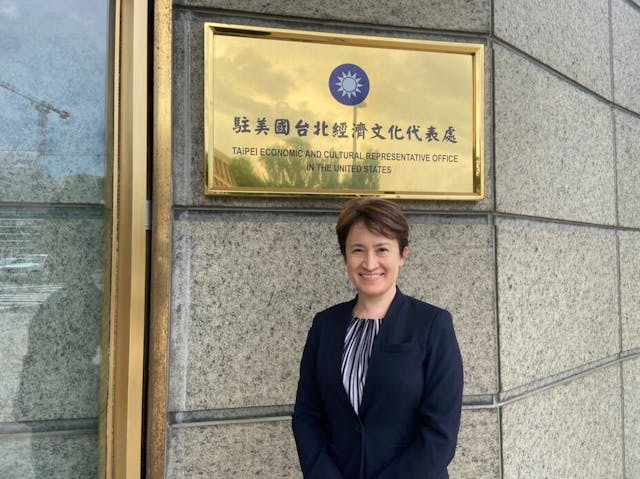
在拜登與習近平通電話之前,美中兩國官員的會談並不很有成果; 雙方經常公開出現分歧,這是一種「擴音器外交」(利用輿論造勢)的手段。如果外交是通過沉默冷靜理性討論解決問題,那麼習近平和拜登的電話會談就是一種高層相互接觸、中下層官員仿傚的良好模式。
據了解,美國部分商界人士敦促華府應對中國對美國商品徵收的關稅,美國零售業一直在遊說華府讓更多中國產品進入美國市場。 顯然,美中貿易戰在一定程度上傷害了美國自身, 因此,美中關於緩和貿易戰、恢復雙邊貿易常態的討論,將成為對雙方消費者和商人都有利的雙贏局面。
畢竟,在經濟相互依存和全球化的年代,貿易戰是特朗普政府對中國採取相對鷹派和過度保護主義政策的產物,中方被迫對美方採取報復措施。 如果貿易戰的源頭來自美國政府,便要靠拜登政府逐步解開這個結,讓美中貿易關係恢復正常。 從某種意義上來說,近期《反外國制裁法》突然推遲納入港澳《基本法》,或許是北京處理中美關係一種善意的積極姿態。 如果是這樣,美國或許應該採取更多措施,以更具建設性的方式解決雙方的貿易爭端。
至於來自中國「軍事威脅」的看法,是由於中國的軍事優勢迅速上升,美國軍方一直採用這種威脅性的看法是很自然的。 但是,如果雙方軍事領導人願意進行雙邊對話、溝通和建立互信,那麼,美中所謂的軍事衝突是可以而且有望避免的。
相反,更令人不安的始終是美國將如何處理台灣的政治未來。美國政府內部的鷹派一直形容中國會對台灣採取「侵略性」軍事行動──這一假設可能掩蓋了北京領導人通過和平而非武力統一台灣的意圖。鑑於習近平和他的智囊正在強調中華民族的偉大復興,和平統一台灣早晚會成為政策重中之重。問題的關鍵在於美國是否會而且能夠遏制主導台灣政治版圖的獨派勢力。
國民黨主席選舉牽動未來兩岸關係
由於台灣的國民黨黨主席選舉將在9月25日舉行,北京與台北關係的前景突然出現一線光明。 競選黨主席的「深藍」候選人張亞中在競選期間提出了一個大膽但顯然可行的方案,以實現兩岸關係的突破。他公開提出國民黨與中共簽署「和平備忘錄」的想法(執政後便可簽和平協議),該「備忘錄」或會得到國民黨的認可,然後作為台灣2024年初總統大選爭取民眾投票的政綱。
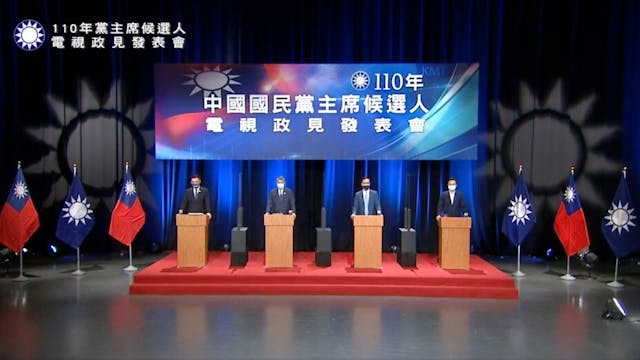
相對另外3位黨主席候選人江啟臣、朱立倫和卓伯源,張亞中提出的政網最大膽,也可能是最重要的「大招」。 目前,張亞中是台灣網民中最受歡迎的黨主席候選人,彰化前縣長卓伯源揚言當選黨主席將邀請中共總書記習近平訪問台灣。
卓伯源的大膽想法遭到觀察家的嘲笑,但張亞中的迅速崛起,不僅預示國民黨的復興,也預示北京與台北關係取得突破的可能性。在處理台北與北京關係的新思維上,江啟臣和朱立倫都表現平平,缺乏創新、大膽和可行的解決方案。
拜登政府的中國問題專家無疑應該研究張亞中發人深省的想法,在未來如何成為可能,特別是一旦北京與台北的關係發展到美國無可避免要進行某種程度的外交「干預」或「援助」。 畢竟,美國在兩岸關係中的角色仍然極其微妙和重要。美國可以也可能會成為和平解決台灣政治未來的促進者,而不是北京與台北關係出現任何突破的障礙。
總而言之,習近平主席與拜登總統通電話,是中美關係建立互信過程的重大突破。儘管兩國在一系列問題上有不同的利益、價值觀和觀點,但北京和華盛頓期待在共同利益和謀求共識的議題上,找到建設性的解決方案,尤其是兩國共同關心的氣候變化、疫情合作和經濟復甦等問題。中美貿易是雙邊問題,可以更有效、更迅速地解決,對雙方而言都是雙贏局面。
但在台灣問題上,雙方都需要更多的政治智慧和具創意的解決方案。在這方面,目前因為國民黨黨主席選舉已經引發了一些創新的想法,包括張亞中和卓伯源所提出的。然而,如果像普魯士「鐵血首相」俾斯麥所說的那樣,「政治就是可能性的藝術」,那麼在關鍵的 2024 年及以後,應對台灣的政治未來,尋求具建設性、創意和可行的解決方案,將是中美關係能否取得進一步突破的最大考驗。
The Xi-Biden phone talks and Sino-US trust-building
The recent 90-minute telephone discussions between Xi Jinping, the President of the People’s Republic of China (PRC), and Joe Biden, the President of the United States of America (USA) have important implications for the context and content of trust-building in Sino-US relations.
The White House’s readout on September 9 was brief, saying that the “two leaders had a broad, strategic discussion in which they discussed areas where our interests converge, and areas where our interests, values and perspectives diverge.” The readout added that Biden and Xi Jinping “agreed to engage on both sets of issues openly and straightforwardly.” From Biden’s perspective, such discussion was part of the American “ongoing effort to responsibly manage the competition” between the two sides. Biden emphasized the American “enduring interest in peace, stability, and prosperity in the Indo-Pacific and the world and the two leaders discussed the responsibility of both nations to ensure competition does not veer into conflict.”
The Xinhua published a report on the phone discussions between the two leaders on September 10, saying that both “had candid, in-depth and extensive strategic communication and exchanges on China-US relations and relevant issues of mutual interest.” President Xi noted that both countries “are respectively the biggest developing country and the biggest developed country;” that “whether they can handle their relationship well bears on the future of the world;” that “it is a question of the century to which the two countries must provide a good answer;” and that both sides “need to show broad vision and shoulder great responsibilities” by looking ahead and pressing forward, demonstrating “strategic courage and political resolve,” and bringing Sino-US relations “back to the right track of stable development as soon as possible for the good of the people in both countries and around the world.”
Judging from the Whitehouse’s brief description focusing on the need for both sides to handle their interests of convergence and divergence, and from Xinhua’s more detailed statement pointing to President Xi’s emphasis on bringing Sino-US relations back to “the right track of stable development,” it is crystal clear that the process of trust-building has made a breakthrough at the top level of the US and China.
The Xinhua report added that, according to President Xi, “on the basis of respecting each other’s core concerns and properly managing differences, the relevant departments of the two countries may continue their engagement and dialogue to advance coordination and cooperation on climate change, Covid-19 response and economic recovery as well as on major international and regional issues.” In other words, both sides are expected to deepen and accelerate their constructive discussions on issues of mutual interests. After all, climate change, Covid-19 and economic recovery are the main concerns of not only Sino-US relations but also other countries in the world. The Xinhua statement pointed to the areas of common concerns.
Most importantly, the Xinhua statement touched on two important issues with consensus: namely “Biden said that the two countries have no interest in letting competition veer into conflict, and that the US side has no intention to change the one-China policy.” The Whitehouse readout did mention that both side’s competition should not be allowed to “veer into conflict,” but it did not openly emphasize the one-China policy as what Xinhua’s report did.
Apparently, the US manages the Republic of China (ROC) in Taiwan both strategically and ambiguously. Although President Biden mentioned in his phone talk with President Xi that the US has no intention of changing its one-China policy, it remains to be seen how the US will tackle the issue of Taiwan. On September 19, it is reported that the US government may allow the Taipei Economic and Cultural Representative Office (TECRO) to be renamed as Taiwan Representative Office. Although this move was already reported in Taiwan as early as December 2020, whether this move would worsen US-China relations remains to be observed.
Before the Biden-Xi phone discussions, the previous talks between US officials and their Chinese counterparts were not very fruitful. Quite often, both sides went into open disagreement, signaling a kind of megaphone diplomacy. If diplomacy embraces silent but calm and rational discussions to solve the problems concerned, the most recent phone discussions between President Xi Jinping and President Biden represented a good model of mutual engagement at the highest level so that the middle- and lower-level officials will follow suit in a closed door setting but with calm, rational and constructive approach to deal with a multiplicity of issues, including trade, climate change and Covid-19 cooperation.
It is reported that some businesspeople in the US have urged Washington to deal with the Chinese tariffs imposed on US goods, and that the American retail sector has been lobbying Washington to let more Chinese products to go into the US market. Apparently, the trade war has hurt the US side to some extent. As such, the US-China discussions of diluting their trade war and returning their bilateral trade to normalcy would become a win-win situation beneficial to the consumers and businesspeople from both sides.
After all, in the era of economic interdependence and globalization, trade war is a legacy of the relatively hawkish and over-protectionist policy adopted by the Trump administration toward the PRC, which was forced to take retaliative measures against the US. If the origin of the trade war stemmed from the US administration, it is up to the Biden government to gradually untie the knot and return the US-China trade relations to a normal situation. In a sense, the recently sudden delay in the incorporation of the PRC’s Anti-Sanctions Law into the Basic Law of Hong Kong and Macau was perhaps a goodwill and positive gesture from Beijing in the handling of Sino-US relations. If so, the US can and should perhaps do more to tackle the trade disputes from both sides in a more constructive manner.
On the perception of military “threat” from the PRC, it is natural that the US military has been adopting such a threat perception because of the rapidly rising military ascendency of China. Yet, if both sides of the military leaders are engaging in mutual dialogue, communication and trust-building process, the so-called military conflicts between the US and China can and will be hopefully avoided.
Rather, the more troubling issue remains how the US is going to handle Taiwan’s political future. The hawks within the US administration have been portraying the PRC as having “aggressive” military moves against Taiwan – an assumption that has perhaps played down the intention of PRC leaders to resolve the future of Taiwan by peace rather than by force. Given that President Xi Jinping and his think tank members are emphasizing the Chinese renaissance, peaceful reunification with Taiwan will likely be a policy priority sooner or later. The crux of the problem is whether the US can and will rein in the separatist forces that dominate the Taiwan political landscape.
In September, a sudden silver lining appears in the prospects of Beijing-Taipei relations because of the ongoing election of party chairman in the opposition Kuomintang (KMT or Nationalist Party) in Taiwan. Chang Ya-chung, a dark blue candidate running for the party chair position, has proposed a daring and yet apparently feasible formula to achieve a breakthrough in Beijing-Taipei relations during his election campaign. He openly put forward an idea of proposing a peace agreement between Taipei and Beijing, an agreement that would be endorsed by the KMT and then put forward as a platform for the Taiwan people to vote for it during the early 2024 presidential election.
Chang’s platform in his campaign is the most daring and potentially most important attack against the other three candidates, including incumbent Johnny Chiang, former party chair Eric Chu and candidate Cho Po-yuan. While Chang is now emerging as the most popular candidate among Taiwan netizens, Cho floated an interesting idea of inviting President Xi Jinping to visit Taiwan after he were elected as the party chairman. Cho’s daring idea was mocked by observers, but the rapid emergence of Chang is pointing to not only a KMT revival but also a possible package of achieving breakthrough in Beijing-Taipei relations. In terms of proposing new ideas to deal with Taipei-Beijing relations, both Johnny Chiang and Eric Chu are performing in a mediocre way and demonstrating a poverty of creative, bold and feasible solutions.
Arguably, the Sinologists in the Biden administration should study how Chang’s thought-provoking idea would perhaps be possible in the future, especially if Beijing-Taipei relations would evolve to such an extent that some degree of US “intervention” or “assistance” would become diplomatically inevitable. After all, the role of the US in Beijing-Taipei relations remains extremely delicate and important. The US can and will potentially be a facilitator in any peaceful resolution of Taiwan’s political future, rather than an obstructor in any breakthrough in Beijing-Taipei relations.
In conclusion, the most recent telephone conversations between President Xi Jinping and President Joe Biden represents a significant breakthrough in the process of building trust in Sino-US relations. Although both countries have divergent interests, values and perspectives on a whole range of issues, Beijing and Washington are looking forward to searching constructive solutions on issues of mutual interests and consensus, focusing on such matters as climate change, Covid-19 and economic recovery. Trade is a bilateral issue that can be tackled more effectively and swiftly with a win-win situation to both sides. On the issue of Taiwan’s political future, however, both sides need more political wisdom and innovative solutions. In this aspect, the current KMT party election has already triggered some innovative ideas, including those from the underdog Chang Ya-chung and the least hopeful Cho Po-yuan. Yet, if politics remains the art of the possible as Bismarck pointed out, then the quest for constructive, innovative and yet feasible solutions to tackle Taiwan’s political future in the critical year of 2024 and beyond will be the most critical test for the further breakthrough in Sino-US relations.
原刊於澳門新聞通訊社(MNA)網站,本社獲作者授權轉載。



